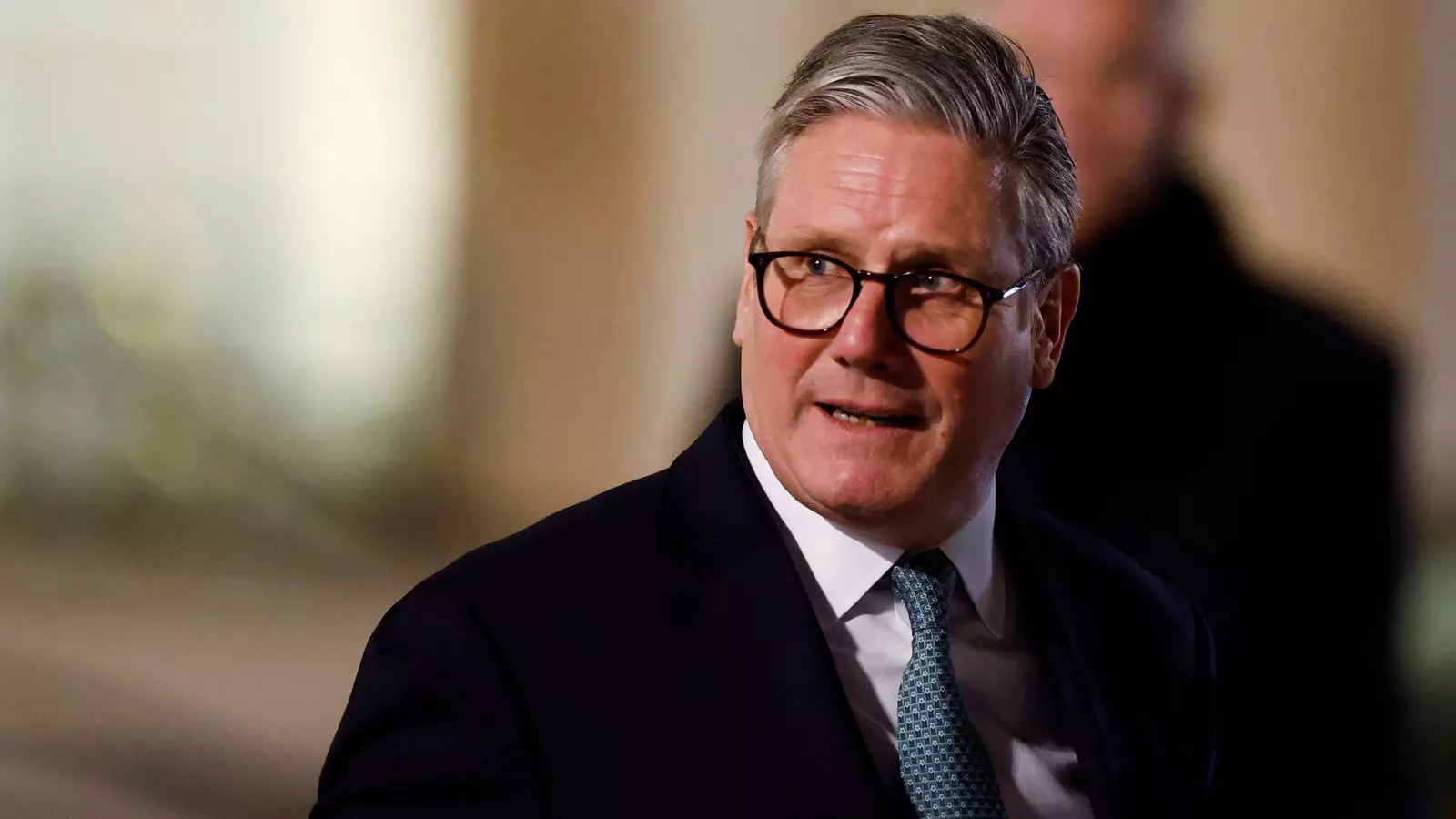The geopolitical landscape in Europe is still volatile, especially in light of the ongoing conflict in Ukraine. In the latest developments, UK Labour Leader Sir Keir Starmer has positioned himself as a pivotal figure advocating for robust support for Ukraine from the United States. His urgent plea for a comprehensive security guarantee underscores the potential ramifications of a poorly negotiated peace deal, which he asserts would set a dangerous precedent not just for Ukraine but for global stability.
In recent statements, Starmer has emphasized that the future of Ukraine should not merely be dictated by external powers, particularly when it comes to fierce negotiations involving the US and Russia. He firmly believes that any peace agreement must include a strong voice for Ukraine, thus ensuring the sovereign nation has a seat at the table when its future is at stake. This appears to be a reaction, in part, to former President Donald Trump’s derogatory remarks about Ukrainian President Volodymyr Zelenskyy, which described him as a “dictator.” Such comments, ahead of Starmer’s visit to Washington, signify a dangerous tone in international discourse regarding the war.
Starmer has articulated a clear stance: peace can only be achieved through strength. He advocates for security measures that would provide Ukraine with lasting assurances—a necessity given the unpredictable nature of Russian aggression. Specifically, he has called for US involvement as a cornerstone of these guarantees and suggests that American support should be multifaceted, encompassing air defenses as well as commitments to protect NATO allies from potential Russian incursions. This nuanced viewpoint illustrates the interconnectedness of American foreign policy and European security, emphasizing that any lapse in support could embolden aggressors.
Adding to the complexity of this situation is the ongoing dialogue between US and Russian delegations, currently taking place in Saudi Arabia, which, notably, has excluded Ukrainian representatives. Starmer’s assertion that “any negotiations about Ukraine cannot happen without Ukraine” highlights a critical point about the ownership of peace processes. The exclusion of the very country under threat risks commodifying war as a matter of state negotiations without considering the humanitarian implications for the people of Ukraine.
As the third anniversary of Russia’s invasion approaches, the UK government is planning new sanctions aimed at intensifying pressure on Russia. This initiative reflects Starmer’s broader vision of a proactive UK role in NATO and European defense structures. By advocating for an increase in UK defense spending and even suggesting the deployment of British troops in any post-peace agreement framework, Starmer appears determined to enhance national and collective security efforts.
Furthermore, the timing of Starmer’s discussions in the US is critical, as he is under pressure from multiple fronts—including UK defense chiefs and the opposition. His commitment to boost defense spending to 2.5% of the GDP signals a significant policy shift and could serve to reinforce the UK’s position as a reliable ally in the NATO alliance.
Starmer’s remarks emphasize the crucial role of unified action among European states and the US in addressing the dual crises of war and security. The call for a durable peace is not merely a political statement; it is a clarion call for collaboration against a backdrop of rising tensions. As the situation evolves, Britain and its allies must navigate the delicate balance of supporting Ukraine while ensuring that long-term stability is not sacrificed for the sake of a hastily proposed agreement.
Sir Keir Starmer’s recent statements and plans underscore the critical need for a comprehensive diplomatic approach that prioritizes Ukraine’s sovereignty and security. His emphasis on the necessity of a strong peace foundation, supported by tangible commitments from the US and NATO allies, highlights the interconnected nature of global security dynamics. As the world watches, the next steps taken by European leaders will be pivotal, not only for Ukraine’s future but for the resilience of democratic values in a time of uncertainty.

